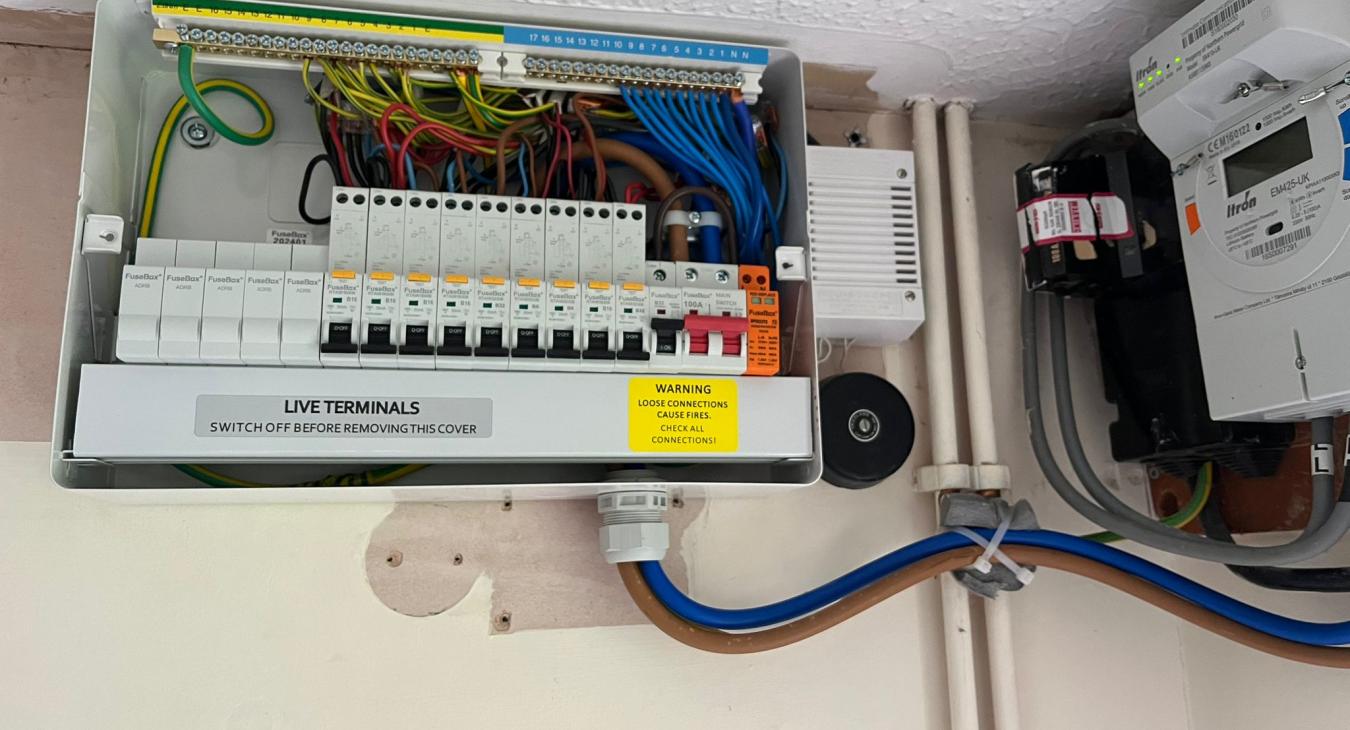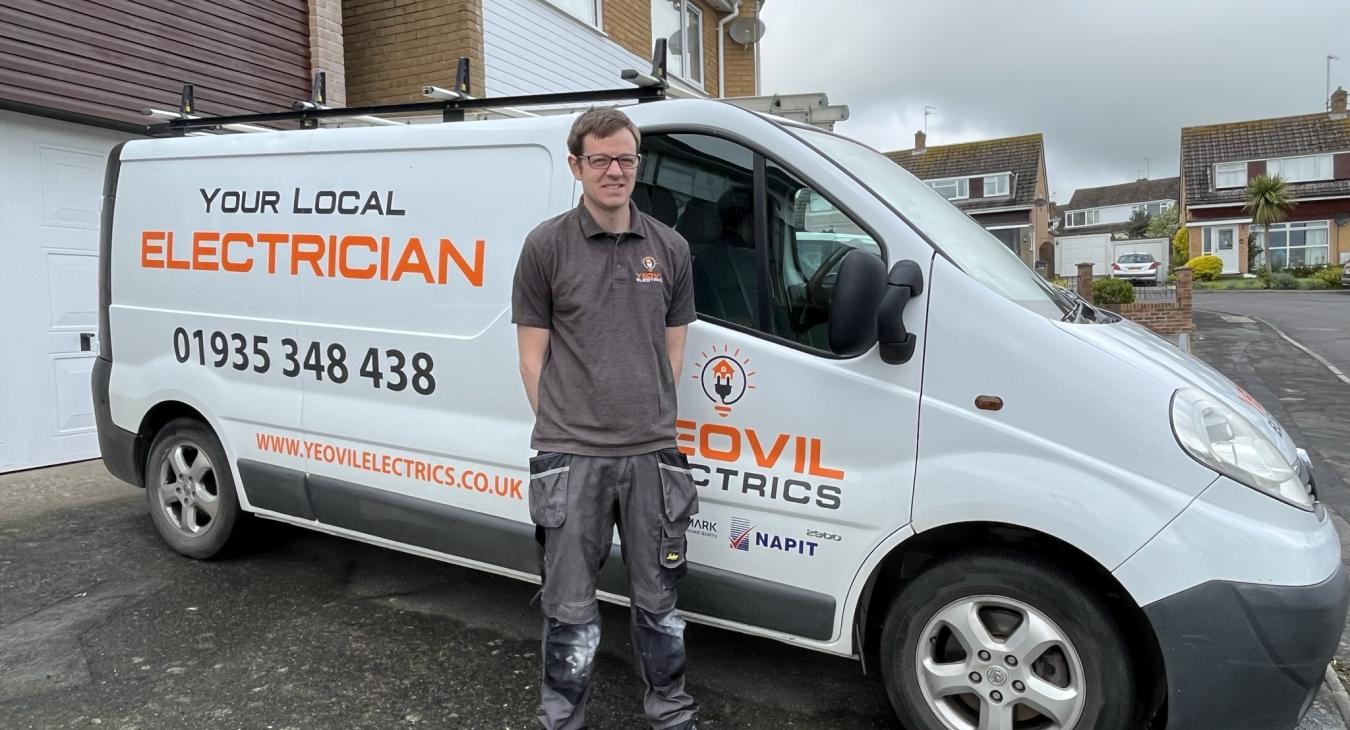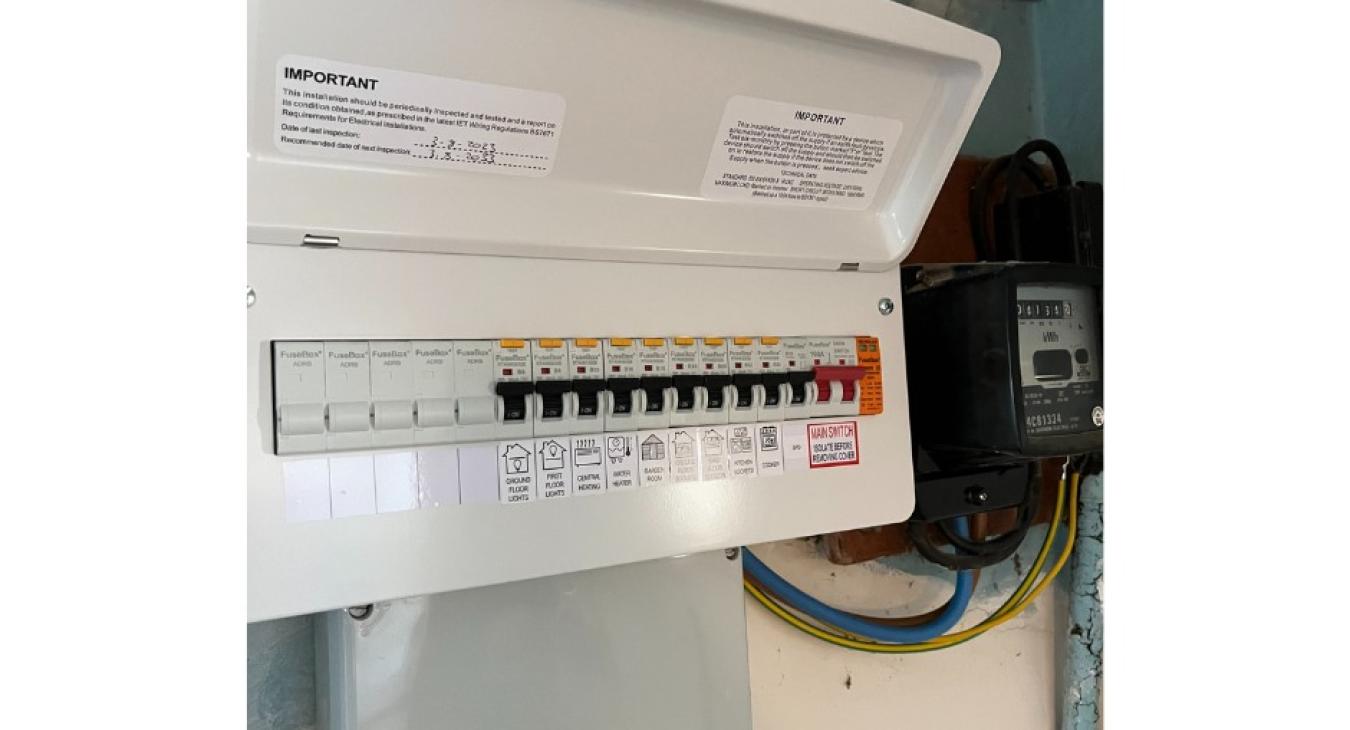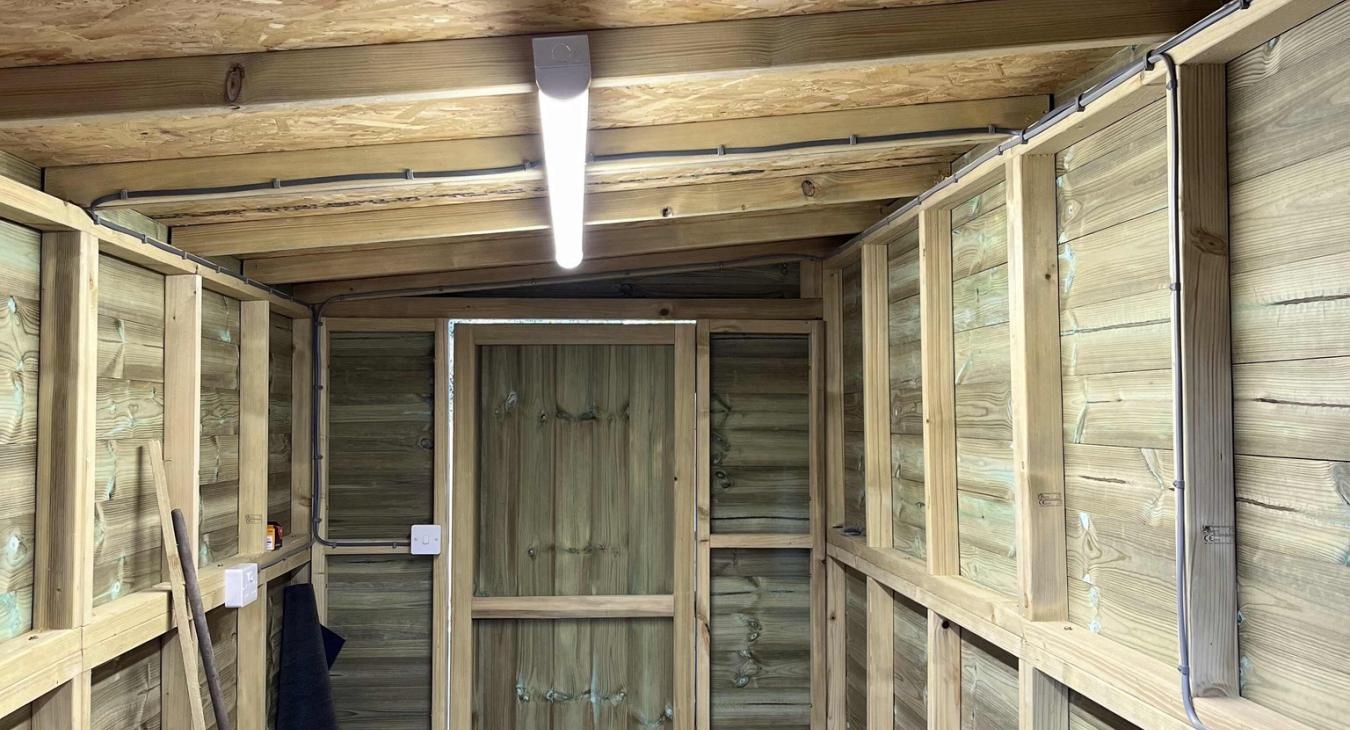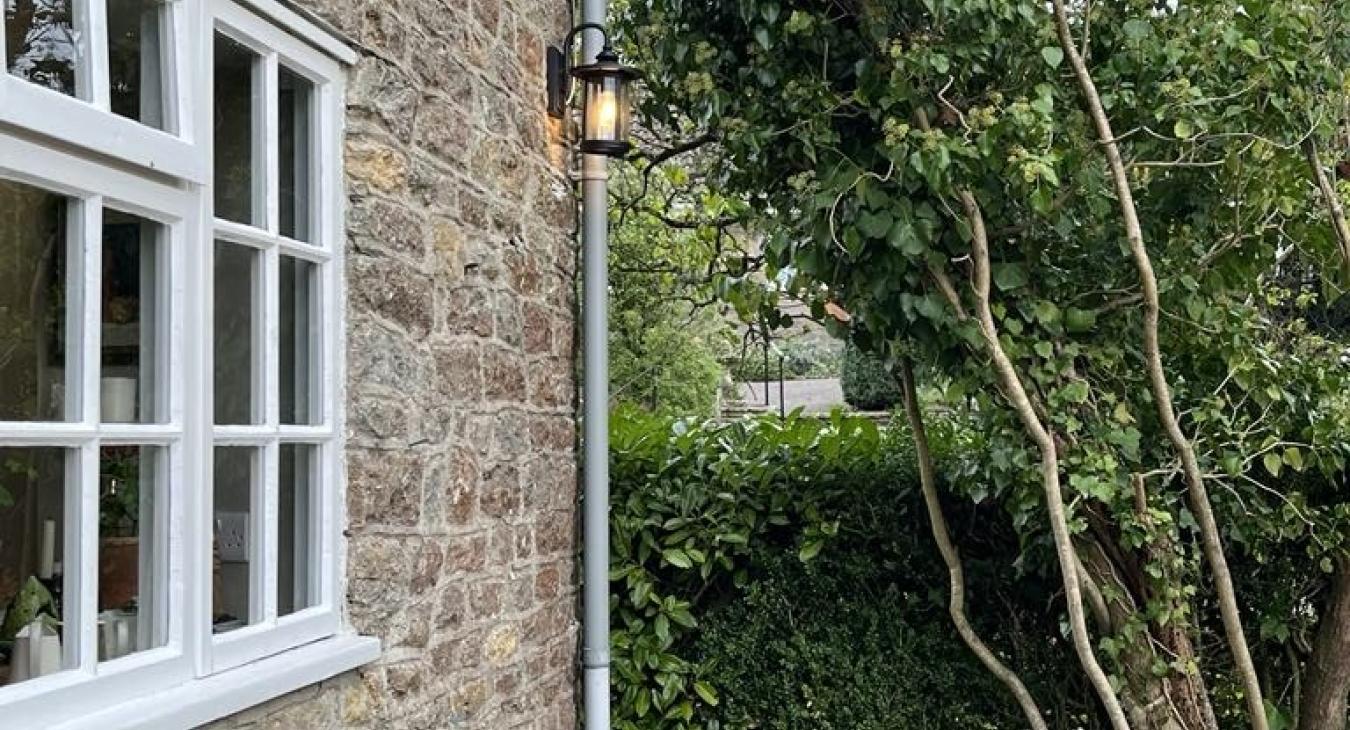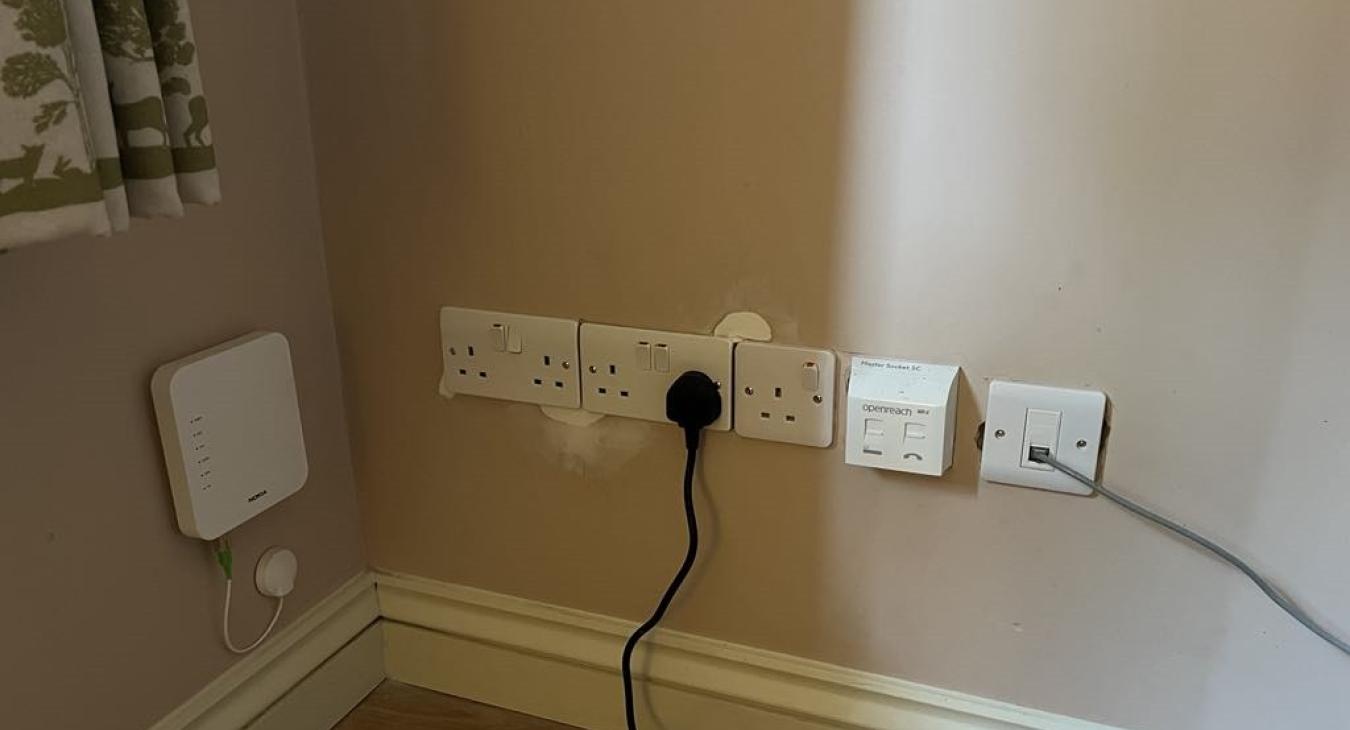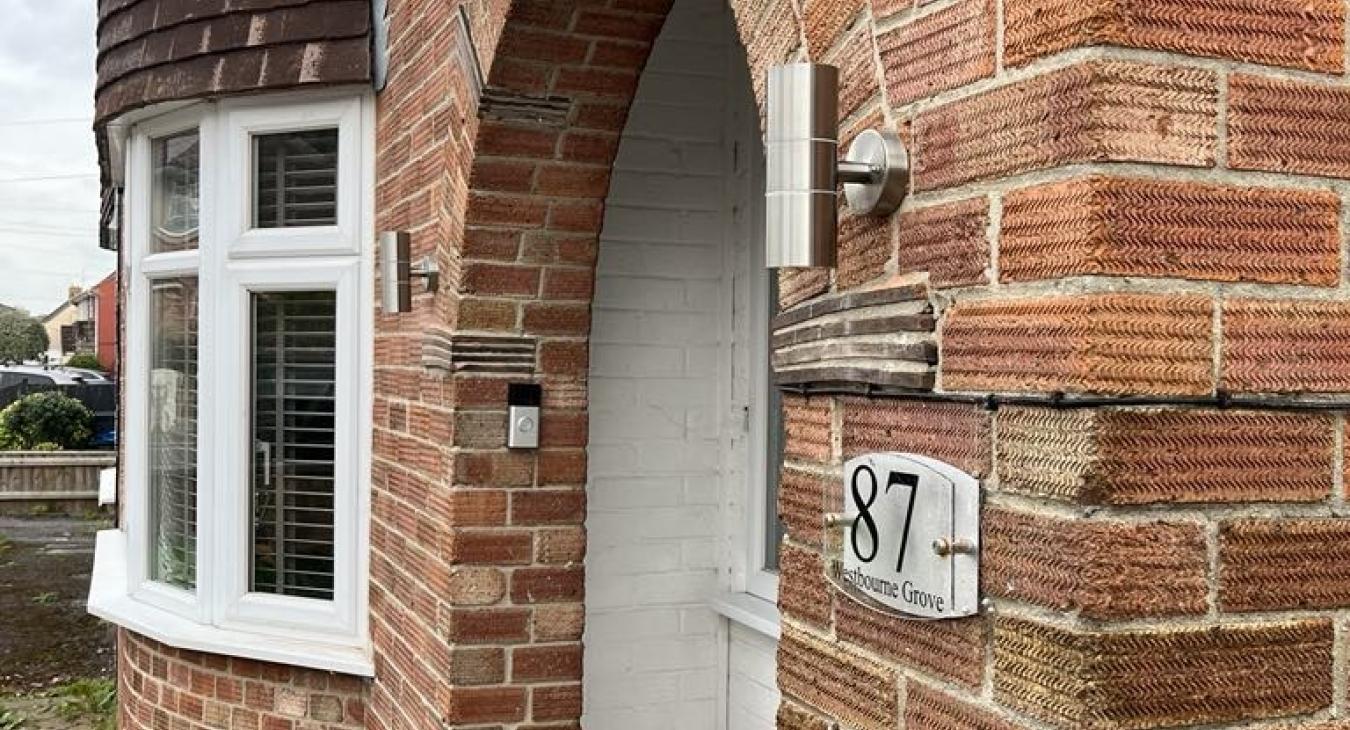Very professional work at reasonable cost!
What is a fuseboard?
There are many names for a fuse board that you may have heard such as:
Trip switch box, Fuse box, Consumer unit and electrical panel. Generally speaking, we are referring to the same thing. The fuseboard is the ‘brains’ of the electrical system and is responsible for a whole variety of tasks such as:
Electric Shock Protection
In order to prevent electric shock in electrical systems we have barriers that prevent us touching live parts. This could be the front of the light switch, the fronts of the sockets and protective covers around light fittings to stop us from touching live wires.
The other things we have are earthing. When things are properly earthed, they have an earth wire that is present and CONTINOUS back to the fuse board. Only an electrician can check that earthing is safe and continuous.
Finally, we have electric shock protection devices at the fuse board or RCD, RCBO, RCB devices as they are known. These clever little devices monitor electrical current flow in the wiring and trip off when they detect any missing. The assumption is that the missing bits are flowing through somebody as they are receiving a shock!
Cable Overload Prevention
Cables can only power so much equipment before they get too hot and melt or catch fire! There are devices in the fuse board to prevent this happening and should trip the electrics before the cables get too hot.
The same devices will also protect against certain types of electrical faults where wires become crossed, damage occurs to cables or ‘short circuit’ situations occur.
Electrical Fault Detection
There are many types of electrical faults that can occur. Modern fuse boards are equipped to deal with a large range of different electrical faults situations and protect us from harm.
Protection from Surges
The most up to date fuse boards will also incorporate a surge protection device (SPD). These devices will detect higher than normal voltages that enter from the mains and divert them safely away from our homes electrical wiring and appliances. The result is that appliances are far less likely to become damaged, may last longer than without an SPD and the wiring should be more protected against large surges in supply.
Dividing the system into circuits
The mains wiring enters from a very thick set of cables and in order to safely distribute electricity around our homes then mains supply needs to be split into smaller supplies for plug sockets, lights, and other electrical equipment.
The fuse board is responsible for safely dividing the power into smaller parts using smaller cables and monitoring this as the electricity flows around our homes.
Why should a fuseboard be changed?
As fuse boards age, the components degrade. Metals corrode internally on switches, components become less likely to operate safely and the risk of overheating can occur. Modern fuse boards contain many features for protecting us and our homes from harm that were simply not available or affordable decades ago.
The safety wiring regulations are updated as technology changes and improvements are made and a modern fuse board contains equipment that reflects and complies with those changes.
There are many compelling reasons to consider a FUSEBOARD UPGRADE IN CREWKERNE but don’t sit and worry about your old fuse board. Get in touch with me and I can perform an electrical check of your system to see if there are any hidden issues. I can safely upgrade your fuseboard for you and provide you with the correct certification and peace of mind.

